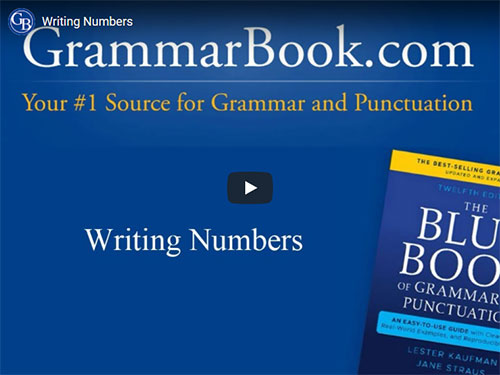|
Having trouble viewing this message? Click here to view it online.
To unsubscribe or change contact details, scroll to the bottom and follow the link.
|



|
|
Is It Eachother or Each Other?
|
|
When we want to express a reciprocal relationship between two things, should we write eachother as one word or each other as two words?
Plenty of American English speakers ask this question, including many who grew up with the language. Fortunately, this area of grammar is rather simple to sort out.
The short answer is that each other (two separate words) is correct. We'll here consider why confusion about the correct phrasing might still sometimes remain.
Why It's Easy to Misunderstand Each Other
We suspect two reasons why one might think of each other as being a single word. The first reason is that native American English speakers tend to pronounce the two words quickly. Try reading this sentence aloud: "Paul and Jane got married because they love each other very much." Did you notice how easy it can be to blend each and other into something that sounds like one word?
The second reason for confusion concerns the fact that other English words can be combined (e.g., any and body into anybody). Given that most of us say "each other" with the same speed and fluidity, we can understand how we might fuse them into a single word.
How to Use Each Other Correctly
Now that we've covered why we might mistakenly treat each other as one word, let's look at how we can remember they are two words.
One technique is to simply think about the phrase itself. You can't have each of a single thing. For instance, if you were selecting one loaf of bread, you could not say you would like to have each one.
Similarly, you cannot have an other if you don't have a first item to count and compare. In our bread example, if you have only one loaf, you can't decide to have the other one (it is not present).
Another approach is to recast your phrasing to include the word the. Instead of writing "Lana and Christy are fond of each other," write "Lana and Christy are each fond of the other." The latter phrasing is wordy and even stilted, so we don't recommend writing this way, but it can serve as a tool in helping us remember the separation between each and other.
|
View and comment on this
article on our website.
|
|
|

|
 |
The Blue Book of Grammar and Punctuation
by Lester Kaufman and Jane Straus |
The Authority on English Grammar! Twelfth Edition Now Available
An indispensable tool for busy professionals, teachers, students, homeschool families, editors, writers, and proofreaders.
Available in print AND as an e-Book! Over 2,000 copies are purchased every month!
To order the book, simply click the link to order the book from the GrammarBook.com website.
|
Free BONUS Quiz for You!
Friend, because you are a subscriber to the newsletter, you get access to one of the Subscribers-Only Quizzes. Click here to take a Confusing Words and Homonyms Quiz and get your scores and explanations instantly!
We will be adding many more quizzes this year to our already substantial list of them. If you have suggestions for topics we have not yet covered, please send us a message at help@grammarbook.com.
|
Hundreds of Additional Quizzes
at Your Fingertips
Subscribe now to receive hundreds of additional English usage quizzes not found anywhere else!
Teachers and Employers
Save hours of valuable time! You may assign quizzes to your students and employees and have their scores tallied, organized, and reported to you! Let GrammarBook.com take the hassle out of teaching English!
"Fun to test my skills."
"The explanations really help ... thanks!"
"I can select the quizzes to assign to my students, and then the results are reported to me automatically!"
If you think you have found an error in a quiz, please email us at help@grammarbook.com
|
Wordplay

One situation where "Your welcome" is correct!
|
 |
English in a Snap:
68 One-Minute English Usage Videos FREE |
Learn all about who and whom, affect and effect, subjects and verbs, adjectives and adverbs, commas, semicolons, quotation marks, and much more by just sitting back and enjoying these easy-to-follow lessons. Share them with your colleagues (and boss), children, teachers, and friends as well! Click here to watch.
|
|